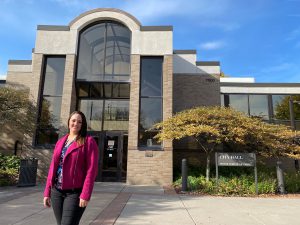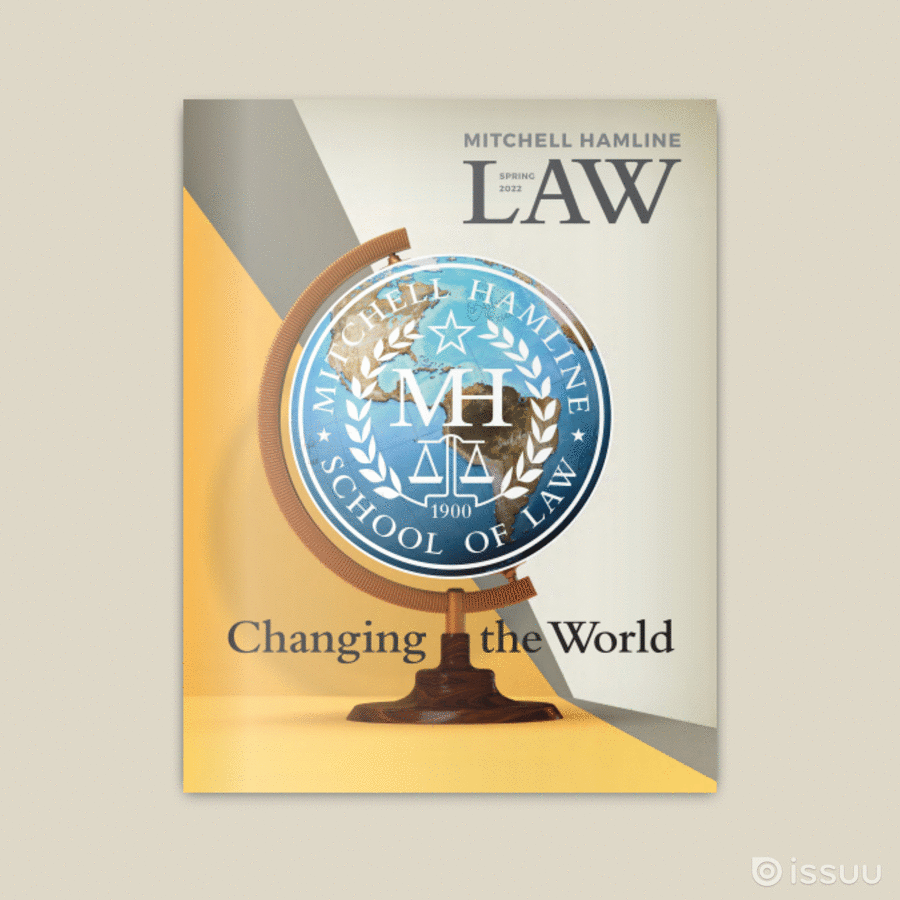
Maria Cisneros ’14, standing in front of Golden Valley City Hall, where she is city attorney.
Maria Cisneros ‘14 was shocked to learn her home in the Twin Cities suburb of Golden Valley, not far from where she grew up, had a racially restrictive covenant on its records. It meant her husband, who is from Venezuela, and her family would not have been able to buy the home if that language was still enforceable.
So Cisneros, who also spent years before becoming an attorney helping immigrant families access essential resources and mortgages, took immediate action to remove the covenant language.
“It was cathartic to take that ‘ick’ off our title and declare that we are allowed to and should be there,” she said.
But the process was tedious, and Cisneros wondered how others without a law degree would fare. As Golden Valley’s city attorney and president of the Minnesota Association of City Attorneys, she was able to act – which led to a grassroots effort called Just Deeds.
Just Deeds collaborates across Minnesota communities to educate and help residents discharge the restrictive deeds at no cost. The effort, led by volunteer attorneys, real estate agents, and city partners, includes the city of Robbinsdale, where Cisneros’ father, Bill Blonigan ‘79, is mayor. Mitchell Hamline staff member and state Rep. Mike Freiberg ’05 is one of several volunteer attorneys.
Just Deeds is connected to a project called Mapping Prejudice, which in recent years has mapped which homes in Hennepin County, Minnesota, have these covenants on their titles.
Mapping Prejudice co-founder Kirsten Delegard says collaborating with Just Deeds helps people connect the data in meaningful ways. “It helps draw the line in very personal ways in terms of what people’s relationships are to practices of structural racism,” she said. “The map helps people see that connection. Just Deeds is helping people take action from there.”
“The intent of helping people go through the discharge process is that it is experiential learning for both the attorney and the homeowners,” added Cisneros. “You’re learning more about the history of your property, your neighborhood, and your city. And attorneys learn how to talk to people about systemic racism.”
With 101 discharges completed and hundreds pending, Cisneros hopes the effort increases community involvement. “When people connect with local government on this, there’s a lot of policy making that impacts how our communities are organized and who has access to spaces and resources,” she said.
Removing the racist and restrictive language is “a powerful act to take back your space,” she noted. “It’s like you’ve reclaimed this piece of land and staked your claim and said: ‘this is now an equitable and not a whites-only space.’”
Marla Khan-Schwartz is a freelance writer in the Twin Cities.

